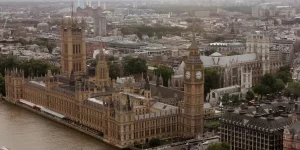On 20 March 2018, the House of Lords Liaison Committee published its recommendations for four new Ad Hoc Select Committees to be created in the 2017 – 19 session.
The four proposals are:
- Bribery Act 2010 (post-legislative scrutiny)
- Intergenerational Fairness and Provision
- Regenerating Seaside Towns and Communities
- The Rural Economy
These recommendations will be debated by Peers in the House before Easter Recess. Based on past Lords Liaison Committee reports, they are likely to be accepted.
Bribery Act 2010 (Post-Legislative Scrutiny)
Post-legislative scrutiny of the Bribery Act 2010 would allow a Committee to assess the impact of the legislation. A principal issue for a Committee to consider would be whether the Act has, as intended, led to stricter prosecution of corrupt conduct, a higher conviction rate, and possibly a reduction in such conduct. Equally, the Act had been described as one of the toughest anti-corruption measures in the world and many organisations warned that UK businesses would be at a competitive disadvantage in obtaining foreign contracts. A Committee could examine whether this has borne out.
Intergenerational Fairness and Provision
It has been proposed that a Committee could consider the long-term implications of Government policy on intergenerational fairness and provision. Two questions in particular jump out of the proposal: What attitudes and perceptions do younger generations have regarding intergenerational fairness? And, what could be done to facilitate young people’s engagement in political discourse, particularly given that younger generations are ‘digital natives’?
Regenerating Seaside Towns and Communities
An inquiry on Regenerating Seaside Towns and Communities would be a complex, cross-cutting inquiry that would span a number of Government departments, policies and funding initiatives. The profiles of these areas, including the demographic challenges, transience of populations and economic deprivation would all feature, as would an assessment of the best approaches to overturning these trends at both a local and national level.
The Rural Economy
The Department for Environment, Food and Rural Affairs suggests the current rural population of England is 9.4 million (2016 mid-year estimate) and represents 17.0 per cent of the population of England (55.3 million). Communities in rural areas suffer from affordability and availability of transport, poor access to broadband, loneliness and isolation, and lack of social cohesion. A Committee inquiry could provide a comprehensive assessment of the rural economy and areas where the Government could provide targeted assistance.
The establishment of these committees should be debated and confirmed before the House rises for Easter Recess.




